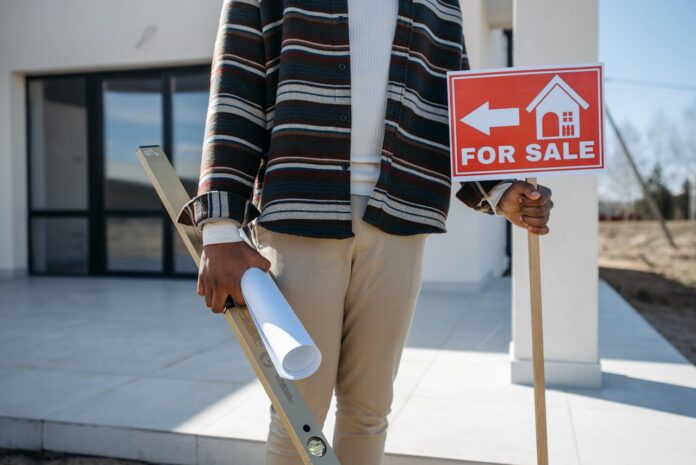
Ideal for those struggling with back to work anxiety.
The Government’s stance on whether we should be working from home for the next few months or spending 2020’s Golden Years replying to emails in a Central London Pret is enough to cause anyone a sudden surge of anxiety.
Should you be part of a team or company who ‘cannot work from home’, and are having to return to a central office, then it’s only natural that this sense of stress and pressure relating to your employment will be even stronger.
Fortunately, there are some practical steps you can take to mitigate the worry you may be feeling about a return to the office. With that in mind, here are 5 proactive ways to minimise back to work stress, IDEAL for those struggling with back to work anxiety.
‘APPY TO HELP
Firstly, let’s deal with an item which we all carry and all seem to turn to, for better or worse, when we’re feeling stressed. That is; our phones. We might as well harness that inevitable screentime for good, then, rather than endless flicking through Twitter on your commute. That is only going to cause more anxiety.
Instead, why not use that commute to soothe your soul a little, with a bedtime story (yep, we know it’s morning, but these are unprecedented times), a guided meditation or short motivational speech. There are several superb meditation and mindfulness apps out there and providing such features this year, most of which have a free version, and some of whom have even made themselves completely free-of-charge whilst the world is in need of such guidance.
Do check out the NHS’ extensive list of Wellbeing Apps, including information on those that are free during coronavirus, which might provide some reassurance in the months ahead.

WORKBAG ESSENTIALS
Speaking of stuff you carry around and instinctively reach for, you should consider kitting out your workbag with a few essential items able to reassure you and potentially reduce your risk of viral infection.
As well as carrying a spare face mask, it’s also a good idea to carry a pouch or envelope for your mask, so it keeps clean, germ-free and fresh when you’re not wearing it. And although it’s stating the obvious, using hand sanitiser after you’ve touched surfaces on your commute and while at work can reassure those particularly concerned about the cleanliness of surfaces, general hygiene and the risk of transmission.
Speaking of the former, and with recent reports that the virus may stay for weeks on glass and other common surfaces, some office returnees are turning to innovation to avoid contamination and ease their concerns.
Fractory, an award winning cloud-based manufacturing company based in Manchester, have developed a potential solution which we might be seeing more of in the future. SafeKey, which Fractory designed and produces on its laser cutting platform, is a smart solution for lowering workplace anxiety in the post pandemic world.
This novel multi-tool removes the need to touch potentially contaminated surfaces, functioning as a door opener, multitool, button presser and can be used to perform a range of everyday tasks, from entering your PIN at a cash machine to pressing the buttons in a lift.
Using it is simple – it’s designed to be intuitive. Safekey attaches to a belt, bag or jacket with an extendable, retractable cord that snaps back quietly once you let it go. The user never needs to touch either a potentially contaminated surface or the part of the tool that has touched the surface. Another great tool in the path to greater workplace peace of mind, we think.

KNOW YOUR RIGHTS
If an investment in gadgets and apps isn’t enough to settle those back-to-work nerves, then perhaps your anxiety is a little more serious, and your employer should treat it as such.
Be aware that most people suffering from anxiety ‘’meet the definition of disability in the Equality Act (2010) and the Disability Discrimination Act (1995, as amended). This means that people with mental health problems are protected from discrimination and harassment and are entitled to reasonable adjustments to adapt their job or work’’, according to the Mental Health Foundation. This means you should expect your workplace to support you without judgment, if you’re comfortable with letting them know you have an issue, that is.
During these unprecedented times, it’s only fair to expect a little more flexibility from your employers, with regards to start and finish times, breaks and necessary time off. Should they not be supple and understanding in their approach, they might even be breaking the law.
RESOURCES & SUPPORT
There’s a lot of support out there for both business owners and employees who are suffering from stress, such as through online networks, support groups and forums. Stress is not something which can simply be ignored, and in most cases, it needs proper, thorough treatment.
As we mentioned earlier, employers have a legal responsibility to protect their staff from stress at work, so make sure your voice is heard if you’re suffering. The mental health charity Mind has plenty of useful resources here for those wishing to get educated and receive advice on the paths to pursue for further help.
What’s more, the Mental Health Foundation represents an arm of the national mental health to the coronavirus, and has a dedicated web page of resources covering everything from housing and employment worries to loneliness, employee mental health tips and much more. Do check it out.

SET BOUNDARIES
Though remote working may be coming to an end for you, the mechanisms are now in place for more #wfh in the future. This can have its upsides, of course, but it’s essential you also keep alert to the potential for a blurring of boundaries where your work is concerned. Maintaining a healthy work/life balance is one of the key steps you can take to reducing back to work anxiety, we think.
Even before working from home became the norm, the shrinking of the world had led to a massive rise in expectations regarding when and where we should be working, with nothing off limits now in terms of when you should be available and ‘on’. To maintain some control over your free time, ensure you set boundaries, both for yourself, and your colleagues and bosses.
This could be a rule to not answer the phone during dinner or when out with friends, or not allowing yourself to check emails at the weekend. Everyone will have different opinions when it comes to blending office and home life but drawing a few red lines in the sand will prevent work-life conflict and the stresses that come with it. Though these red lines should usually be gentle and purely hypothetical, should you need to insist more sternly on your employer not contacting you when you’re at home, then check out this guide on Employee Privacy Rights for some useful pointers.
And with that, we hope that returning to work is as smooth and seamless as possible. If you feel concerned, we’re always here to talk!
*This article is not intended to replace medical advice, diagnosis or treatment given by a qualified health professional. Instead, this article only provides information, not advice. For any medical enquiries, always consult your GP first*





